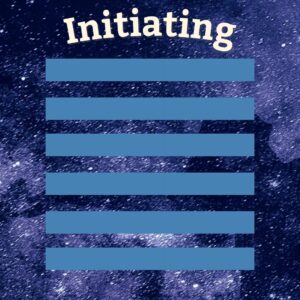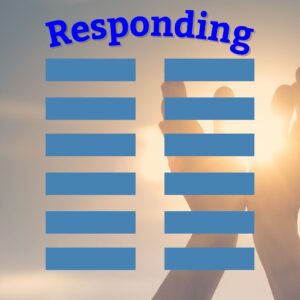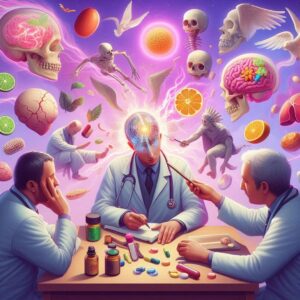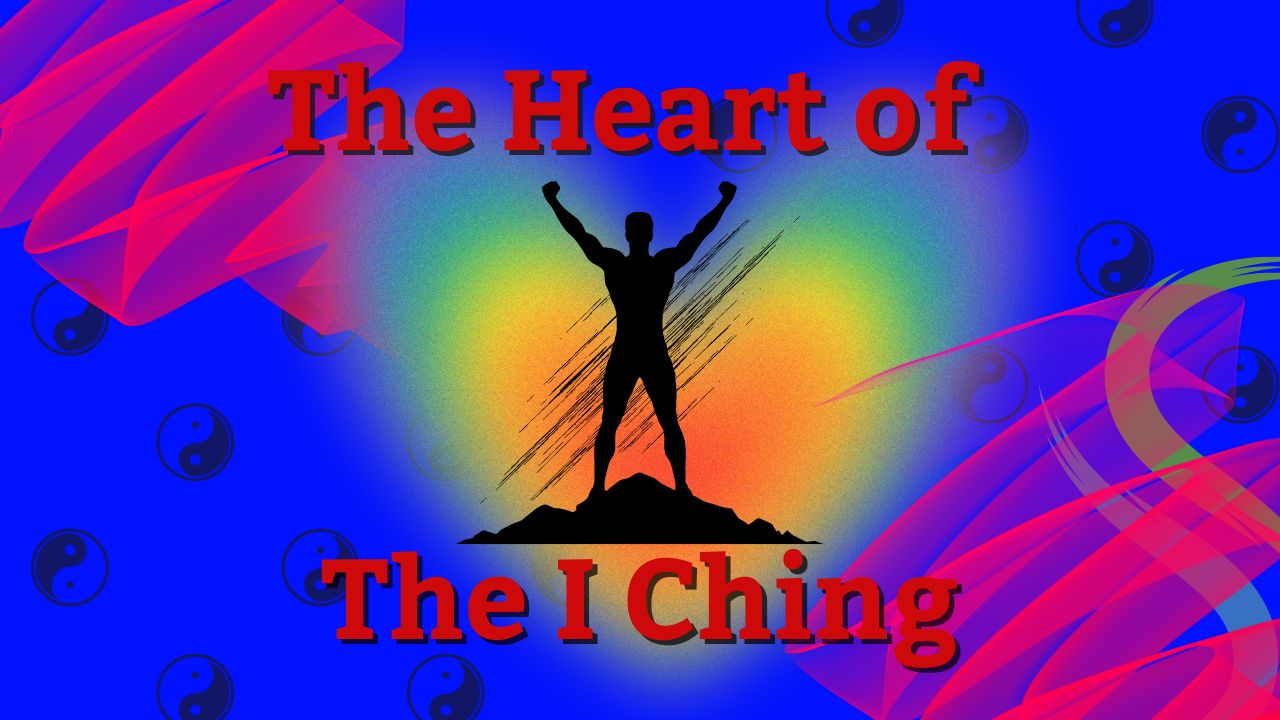Twelve years ago, I encountered the I Ching, a complex puzzle that I was determined to solve. Despite the challenges, I couldn’t ignore its foundational role in Chinese Medicine. So, I embarked on a journey, unwavering in my determination to unlock its secrets.
I use the term Chinese Medicine because I don’t know about other forms of Medicine used in the East. Is the I Ching foundational to all of them? My inner voice suspects that universal truth is foundational to all Medicine, making the I Ching relevant to all. But, my intellect doesn’t have that sense of assuredness that my education has come to rely on. So, I use the term Chinese Medicine.
 I’ve studied and studied the I Ching. It just seems so obscure. I’ll have captured a piece of this dragon by its tail. I’ll hold on for dear life as the dragon takes a sudden turn and darts into the sky before exploding into a torrent of fireworks, leaving me bewildered, realizing I don’t know anything.
I’ve studied and studied the I Ching. It just seems so obscure. I’ll have captured a piece of this dragon by its tail. I’ll hold on for dear life as the dragon takes a sudden turn and darts into the sky before exploding into a torrent of fireworks, leaving me bewildered, realizing I don’t know anything.
It’s frustrating the I Ching can not be accessed through the intellect. The I Ching opens to you through your intuition, that inner voice deep within you that knows the truth. Intuition is the voice that will cast doubt when you use your intellect to rationalize away the truth.
I started my journey into I Ching to become a better Chinese medicine practitioner. The I Ching explains Yin and Yang. In school, I learned a simple phrase that the imbalance between Yin and Yang causes all diseases. I wanted to study the I Ching to put a checkmark on that.
Eastern Philosophy is the opposite of Western thought. In the West, opposites are in contention, fighting to survive. Only one can survive. There is always a winner and a loser or good and bad. The West would see Yin and Yang as antagonistic to each other. One pushes the other, creating an explosion to change its state.
 The I Ching opened up a new world where opposites are not contending. Instead, opposition enables them to support and grow each other. They become complimentary. Like when you wake up in the morning and go about your day. As the day ends, you feel tired and go to sleep so you can start the next day renewed because the yin of sleep rebuilds your energy. Here, the yin and yang, night and day, work together to support and procreate each other so you can live.
The I Ching opened up a new world where opposites are not contending. Instead, opposition enables them to support and grow each other. They become complimentary. Like when you wake up in the morning and go about your day. As the day ends, you feel tired and go to sleep so you can start the next day renewed because the yin of sleep rebuilds your energy. Here, the yin and yang, night and day, work together to support and procreate each other so you can live.
This twist of thought takes practice because the Western mind wants to return to dichotomous thinking, where things are black and white, winners or losers. The Western mind loves a line.
The I Ching begins with hexagram 1-Initiating, the pure yang force of imagination. Hexagram 2 is Responding, a pure yin force of being receptive and able to nurture an idea and bring the dream into reality.
These two hexagrams are vital for each other. Yang is an idea, yet an idea without implementation dies on the vine. Yin is the ability to implement, yet the ability to implement has no place to go without an idea.
An idea needs an open, receptive ear to hear and accept the idea and help bring the idea to life. An idea needs the opportunity to test itself and see if it can work. An idea is a dream. A dream without support dies as only a thought that feels abandoned and betrayed. Too many of these little deaths, and that dream manifests in our personalities as anger, insecurities, hate, absolutes, depression, and anxiety.
And then I think about the yin side of this. Yin is the fertile ground that can provide the resources to bring the idea to life. Yin needs an idea to support and nurture. Yin is the ability to grow the seed and manifest that seed’s destiny. Without the ability to promote and grow destiny, the mind turns on itself with depression, self-criticism, and low self-worth.
There’s another key aspect: Yang freely shares ideas with Yin without worrying about credit, what others think, or imaginary limits. While Yin openly accepts and nurtures these ideas without concern for the effort involved. The energy flows effortlessly and willingly between them. Yang is motivated to give ideas to Yin, encouraged by Yin’s acceptance. Yin, eager to manifest these ideas, opens up to Yang’s creativity. This mutual acceptance inspires Yang to dream bigger and Yin to create more.
I can see the energy flowing between Yin and Yang. When this energy is strong, their communication becomes complete and profound. As I envision this interplay, I suddenly realize that this is what love truly is—the open receptiveness between the two. The willingness to support each other without being constrained by judgments or rules. Without trying to limit each other to protect them from life. Without trying to take from the other to have a bigger piece of the pie. Instead, they allow each to offer their best to the world. When this harmony is achieved, all 10,000 things flourish.
Yin and Yang have sidestepped insecurities and social judgments. They aren’t confined by rules because, in their world, anything is possible.
Yes, I know that, don’t I? The meaning of life is love. At least, that’s what my intellect tells me. But it’s easy to brush off the enormity of this realization. Yin and Yang is the roadmap to understanding and becoming pure love.
How does that change how I practice this Medicine? How do I create an environment where Yin and Yang support each other to allow health to flourish deeply, personally, and courageously?
I have been so focused on the concept of Medicine as healing. Yet, when I consider healing, does that enable me to decide what is best for my client? How would my choices change if I considered helping their Yin and Yang to flourish in the unique and personal way they want to grow?
 It’s probably easier to see my dilemma in Western Medicine because the issue is so apparent in Western Medicine. Western Medicine defines healing as the relief from symptoms or recovery from injury using medications and/or surgery as determined by the doctor. The dream is the Western doctor has an answer to everything.
It’s probably easier to see my dilemma in Western Medicine because the issue is so apparent in Western Medicine. Western Medicine defines healing as the relief from symptoms or recovery from injury using medications and/or surgery as determined by the doctor. The dream is the Western doctor has an answer to everything.
Yet, what happens when they don’t? What happens when the patient feels, deep within themselves, that the proposed solution isn’t the answer?
When this happens, yin and yang tilts out of balance. Hearing the patient’s desires is hard when the doctor is wrapped in proving their education. Yet, this can be the tilt of ego in any expert position.
I’m amazed by these insights. Studying the I Ching doesn’t make understanding Medicine any easier. It’s more complex. I see the subtleties of how ego can slip into every healing decision. I get why Taoists retreat to the mountains to reflect on life. Yin and yang offers the roadmap back to the Tao and that path is through a love far more subtle than I realized.

